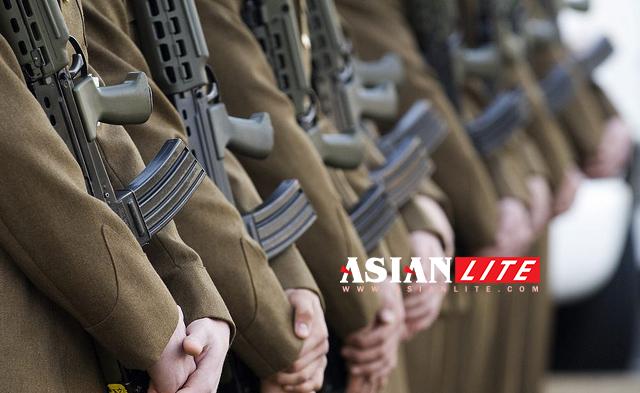Almost every tenth new recruit in the British army is, in fact, only a boy soldier barely 16 years old, Britain’s defence ministry has revealed.
The latest statistics released by the ministry last week also revealed that more than quarter of all new army recruits are under 18 – too young to be sent into combat, The Independent reported Sunday.
The figures have sparked renewed criticism of the British army’s use of boy soldiers.
Following an outcry over the deployment of 17-year-olds to the Gulf War in 1991, and to Kosovo in 1999, the British army amended its rules stopping soldiers under 18 from being sent on operations where there was a possibility of fighting.
Despite this, at least 20 soldiers, aged 17, are known to have served in Afghanistan and Iraq due to errors committed by the defence ministry.
Critics claim the figures mean Britain stands alongside some of the world’s most repressive regimes, recruiting children into the armed forces – among 20 countries that include North Korea and Iran. They accused Britain’s defence ministry of deliberately targetting teenagers not old enough to vote in a bid to boost recruitment.
There are more than 1,700 teenagers in the armed forces below voting age. The vast majority of 16- and 17-year-olds are in the army, according to the 2014 annual personnel report.
The proportion of army recruits aged just 16 has risen from 10 per cent in 2012-13 to 13 per cent in 2013-14. Many of them would have begun the enlistment process when they were 15, according to campaigners.
“By recruiting at 16, the UK isolates itself from its main political and military allies and finds itself instead sharing a policy with the likes of North Korea and Iran. These are not states which the UK would normally want its military to be associated with,” said Richard Clarke, director of Child Soldiers International.
A defence ministry spokesperson, however, dismissed the concerns as “nonsense”.
“A career in the armed forces provides young people with benefits and opportunities, equipping them with valuable and transferable skills for life, so it is encouraging that young people continue to recognise this and are coming forward to serve their country,” the spokesman said.
